Science & Society

Educators and Parents, Sign Up for The Cheat Sheet
Weekly updates to help you use Science News Explores in the learning environment
Thank you for signing up!
There was a problem signing you up.
-
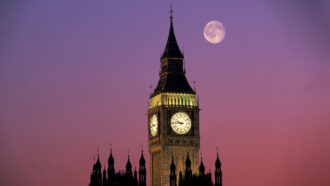 Space
SpaceHere’s why the moon must get its own time zone
But should moon time be like Earth time — or quite different? At issue: The moon’s lesser gravity will make seconds there tick faster than on Earth.
By Tammy Awtry -
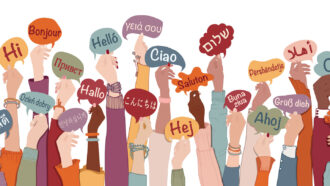 Brain
BrainLet’s learn about the science of language
The languages we speak may help shape how we see, smell and hear the world around us.
-
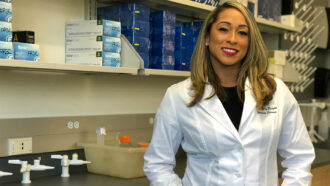 Chemistry
ChemistryThis forensic scientist is taking crime science out of the lab
Kelly Knight uses her past struggles and passion for forensics to inspire her students.
-
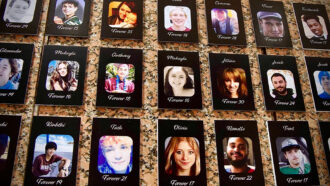 Health & Medicine
Health & MedicineFentanyl deaths have spiked among U.S. kids and teens. Here’s what to know
A pediatrician discusses how teens can protect themselves and their friends from this extremely deadly drug.
-
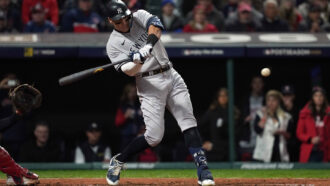 Climate
ClimateDue to global warming, major league hitters are slugging more home runs
Major League Baseball has seen an average of 58 more home runs each season since 2010. The apparent reason: reduced friction on the balls in warmer air.
-
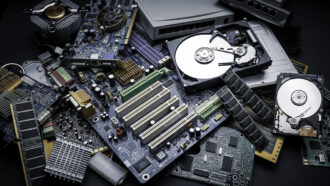 Tech
TechRecycling rare-earth elements is hard — but worth it
As demand for these valuable metals has been skyrocketing, scientists have begun inventing new — and greener — ways to reuse what they have in hand.
By Erin Wayman -
 Earth
EarthRare earths’ hidden electrons make much of modern tech possible
Because of their unique chemistry, rare-earth elements can generate powerful magnetic fields and fine-tune light for a wide range of applications.
By Nikk Ogasa -
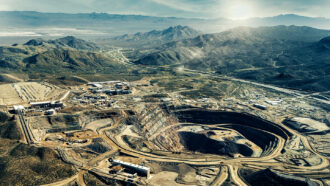 Environment
EnvironmentRare-earth mining is dirty but key to a climate-friendlier future
That’s spurring new research to find a steady but safer supply of these precious metals, including in the United States.
-
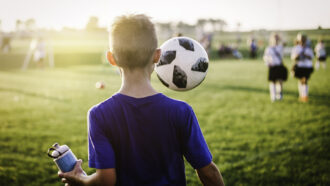 Health & Medicine
Health & MedicineHow to be heat-safe when playing sports
Protecting young athletes from overheating is getting more important as climate change turns up the temperature.
By Megan Sever -
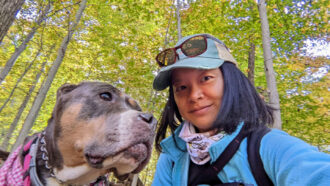 Animals
AnimalsThis biologist uses microwave radiation to save endangered species
Pei-Chih Lee works to preserve genetic material that can help researchers learn more about endangered animals, such as pandas and clouded leopards.
-
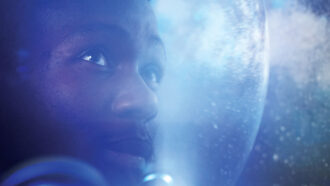 Space
SpaceThe next astronauts to walk the moon will be more diverse than the last
Space agencies are preparing to send the next generation of astronauts to the moon and beyond. Here’s how future crews will differ from the last.
-
 Climate
ClimateCreating less new stuff could greatly help Earth’s climate
Instead of throwing unneeded things away, scientists recommend moving to a cycle of reducing, reusing, repairing and remaking old things into new ones.